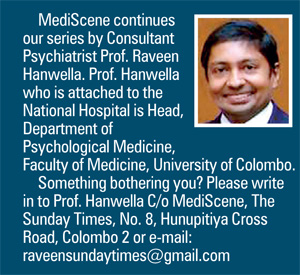When belief in astrology is harmful
When I was a trainee in psychiatry there was a famous astrologer from down south who regularly referred patients to the Professor of Psychiatry. Through long experience he was able to identify persons with mental illness who came to him for astrological readings and refer them for help. His diagnosis was usually correct. Sadly he is one of few enlightened astrologers. More than with any other illness people are likely to seek help from an astrologer when they or their relatives develop signs of mental illness. Perhaps it is because signs of mental illness are more likely to be behavioural, emotional and cognitive rather than physical, therefore less likely to be recognised as an illness. As with rituals and traditions, is it harmful to seek astrological help in such times?
 Before answering that question let us examine whether astrology is a science (as its proponents claim). Can its claims be validated by scientific inquiry?
Before answering that question let us examine whether astrology is a science (as its proponents claim). Can its claims be validated by scientific inquiry?
Has there been such scientific inquiry, and if so what has been the outcome? Hans Eysenck, a well-known psychologist of the last century, best known for his work on human personality developed one of the most widely used personality questionnaires. To understand his research on astrology, it is useful to look at his work on personality. After analysing the answers given by several thousand people, he identified two fundamental dimensions of human personality namely, ‘extroversion’ and ‘neuroticism’.
His Eysenck Personality Inventory (EPI) which contains statements that can be answered with a ‘yes’ or a ‘no’ was designed to measure these traits. People who score high on the extroversion scale are happy, optimistic, sociable and seek instant gratification. The ‘introverts’ at the other end of this dimension are controlled and reserved, with few close friends. Most people fall in the middle between the two extremes. The neuroticism dimension measures a person’s emotional stability and those who score high have a low self-esteem, have unrealistic goals and often feel hostile and envious. Those who score low are more relaxed, able to face failure and can laugh at themselves.
According to astrology, six of the twelve signs of the zodiac: Aries, Gemini, Leo, Libra, Sagittarius, and Aquarius are associated with extroversion and six: Taurus, Cancer, Virgo, Scorpio, Capricorn, and Pisces, with introversion. Those in Taurus, Virgo and Capricorn are thought to be emotionally stable and practical and those in the three “water” signs, Cancer, Scorpio, and Pisces more neurotic.
In association with Jeff Mayo, a well-known astrologer with a large following, Eysenck set out to find whether there was an actual association. Two thousand of Mayo’s students and clients completed the Eysenck Personality Inventory. Sceptics expected that there would be no association between the sun signs of the participants and their personality profile on the Eysenck Personality Inventory. To the surprise of the sceptics and Eysenck there was a strong correlation. The findings were hailed by the astrological community as “the most important development for astrology in this century.”
Eysenck, however, wondered whether the strong belief in astrology of the participants had biased the study. People who were aware of the personality traits associated with their star signs may develop into persons with those traits or at least come to believe that they have those traits. Eysenck carried out two further studies to test his theory. In the first he studied a group of 1000 children who were unlikely to be believers in sun signs. This time there was no correlation between the children’s personality profile on the EPI and their sun signs. In the second study with adults, he correlated their knowledge and belief in astrology with the correlation between sun signs and their EPI profiles. In those with knowledge and belief in astrology there was a correlation and in those without, no correlation. The conclusion was clear; a person’s sun sign had no relationship to his or her personality.
The evidence suggests that astrologers cannot read a person’s character from the position of the planets at the moment of birth, neither can they see into anyone’s past nor predict their future. If the evidence is so overwhelming why do people still believe in astrology?
To quote the well-known sceptic James Randi, “From this and mountains of other evidence, it is apparent that, logically, astrology should not work. Couple this with the mathematical/physical fact that the gravitational influence of the physician’s body as he assists childbirth has far greater effect on the baby being born than the entire gravitational field of the planet Mars.”
Is astrology harmful? I believe it is. When people go to the astrologer in times of trouble they are told that they are passing through a bad period or that someone who is envious of their success has charmed them. Rarely if ever do astrologers offer words of encouragement of hope. Often various rituals are advised which are costly (often more than the cost of medical treatment even in the private sector). Especially in children with autism or learning disability where early intervention is crucial, treatment has been delayed for years while parents waited for the bad period to pass. In acute illness such as schizophrenia, severe depression and mania, where immediate treatment makes a crucial difference to the long term outcome, treatment is delayed while people waste time in useless rituals.
Yet people continue to believe in astrology. As the great science fiction writer Isaac Asimov said, “It is sad that it does take courage, for trying to snatch folly from the minds of those who have been victimized by it is often rather like trying to snatch a bone from a dog. If human beings didn’t find nonsense so attractive, there’d be no problem, for as someone said, ‘Were there fewer fools, knaves would starve’.”


